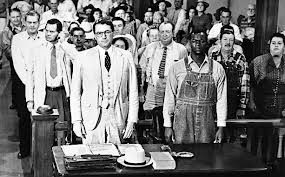
Given the changes in my own life, I’m always interested in transitions, especially when unplanned and unexpected, and how others deal with them. Coping with life transitions in a healthy way can make all the difference in a person’s quality of life and potential for future success. Depending upon your point-of-view, transitions can become more than simple changes and take on a transformative quality.
As many of you know, I began my writing career as a side endeavor, while working full-time as a trial attorney. I went through an unplanned and quite unexpected transition when I began to experience symptoms of a rare movement disorder. By the time doctors diagnosed me with the disorder, I found it increasingly difficult to perform the demanding role of trial lawyer. This accelerated my transition from my lifelong profession in law to an entirely new life as an author of crime fiction.
Planned or unplanned, transitions are difficult. But when we go about handling the transitions with a proactive attitude, there’s often also a very positive side to them. It’s through these transitions that we can more objectively evaluate our life journey and decide whether a change in direction is in order – like I did when I left the legal profession began my full time career as an author of crime novels.
From Transition to Transformation in Fiction
Just as transitions are an important part in real life, they’re very important in fiction as well. The most memorable characters in novels go through transitions in their fictional universe. In my Jack Davis Thriller Series, Davis has to give up his career as an FBI Special Agent; he suffers from the same rare movement disorder that I do. I wrote three books for the series, beginning with Shakedown. Davis is a prime example of art imitating life – my life.
Consider Atticus Finch from Harper Lee’s courtroom classic To Kill A Mockingbird. Finch is one of the most beloved characters in American literature—and a lawyer. By choosing to represent the black defendant, Tom Robinson, against charges of rape that Finch knows are baseless, he goes against all contemporary social and political mores.
Finch gets a lot of pushback from his community for his decision. But because he is willing to take a stand for what is right—to transition—Finch and many other characters are transformed. All fictional characters do not accomplish what Finch does. Some characters do a better job than others, but even those failings can help develop both character and plot. Treating transitions properly, according to your vision for a given character is critical to moving the plot along in a compelling way.
The Ten Commandments of Transition
Recently, I heard a sermon by Rabbi Art Nemitoff, The Temple Congregation, B’nai Jehudah in which he talked about The Ten Commandments of Transition. Rabbi Nemitoff didn’t write them and I’m not certain who did, but he shared them with our congregation to illustrate how, when done properly, transitions give us a chance to grow and learn.
I think these “commandments” could also serve as a useful tool when developing a character and trying to decide how he or she will handle an upcoming fictionalized life transition. Certain characters will efficiently employ all or most of these steps, while others may use them, but distort them in some way, according to their own flaws.
Take a look at these Ten Commandments of Transition:
- Accept that change is a normal part of life. Seeing changes as containing opportunities makes them easier to navigate and more personally productive.
- Expect to feel uncomfortable. A time of transition is confusing and disorienting. It is normal to feel insecure and anxious. These feelings are part of the process, and they will pass.
- Build your support system. Seek the support of friends and family members, especially those who accept you without judging you and encourage you to express your true feelings.
- Learn to identify and express your feelings. Feelings of fear and anxiety have less power over us if we face them and express them. Make them real by talking about them with trusted friends and family members
- Acknowledge what you are leaving behind. This is the first step to accepting the new. Endings are always difficult. But before we can welcome the new, we must acknowledge and let go of the old.
- Identify your values and life goals. If a person knows who they are and what they want from life, they may see change as just another life opportunity. Such people do not blame outside factors for changes that come along without warning.
- Focus on the payoffs. Transitions can provide a productive time to do some important self-exploration. They can be a chance to overcome fears and to learn to deal with uncertainty. This can be a great gift: to learn more about ourselves and what makes us happy and fulfilled.
- Don’t be in a rush. When life is disrupted, it takes time to adjust to new realities. Avoid starting new activities too soon, before having a chance to reflect and think about what is really best for you.
- Take one step at a time. With transitions, it’s understandable to feel like our lives become unmanageable. To regain a sense of power, find one small thing you can control right now. Then break it down into small, specific, concrete steps.
- Breathe. Perhaps the most under-appreciated tool that each of us possesses. When we breathe in, we bring the gift of God into us. When we breathe out, God’s essence surrounds us, and supports us.
Adapting to change, even under the best of circumstances requires courage, sometimes on a moment-to-moment basis. This reality is not lost on Atticus Finch who explains the motive for his transformation: “I wanted you to see what real courage is, instead of getting the idea that courage is a man with a gun in his hand. It’s when you know you’re licked before you begin, but you begin anyway and see it through no matter what.” – To Kill A Mockingbird, by Harper Lee.
How have life transitions changed your life for the better?
Images credit: Ian Junor, ew [dot] com













Thanks Joel for sharing these 10 Commandments. For me, they are timely right now. I hope to write about my transition, or at least the lessons learned and challenges survived, when the transition if finished. And as a former trial lawyer and fellow crime fiction writer, I appreciate your application of these wise thoughts to stories, especially one of my favorite, “To Kill A Mockingbird.” steve eggleston
Thanks, Steve. Great to hear from you.
Greetings,
This article came at the right time. As you may remember, I live in Phoenix. In December my 45 year old son and his wife had their first baby. I had mentioned to him that the only sadness to this was that I probably would never see her graduate from high school. This must have gotten him thinking. Long story short…I am attempting to sell my home because as in his words, “Mom, I want my daughter to know you.”
What a change this will be:) the article made me realize that indeed life is a series of changes.
Thanks for the insight.
Kathy
Thanks, Kathy. We’re all traveling the same road.
Joel: That was an excellent article that sure hit home for me. I struggle with my voice disorder every day but continue practicing law, or at least part-time, hoping that people will and often do overlook the rather strange tone of my voice. I am still looking for that other opportunity to use my creativity in another field. I do love to write, but am looking for that perfect niche. Your comments were so useful to so many people…transitions sure are difficult and take bravery and courage to follow through. I admire all that you’ve done! Naomi Kauffman
Thanks, Naomi. So nice to hear from you. I now how much you struggle and how much you’ve accomplished and will continue to accomplish.